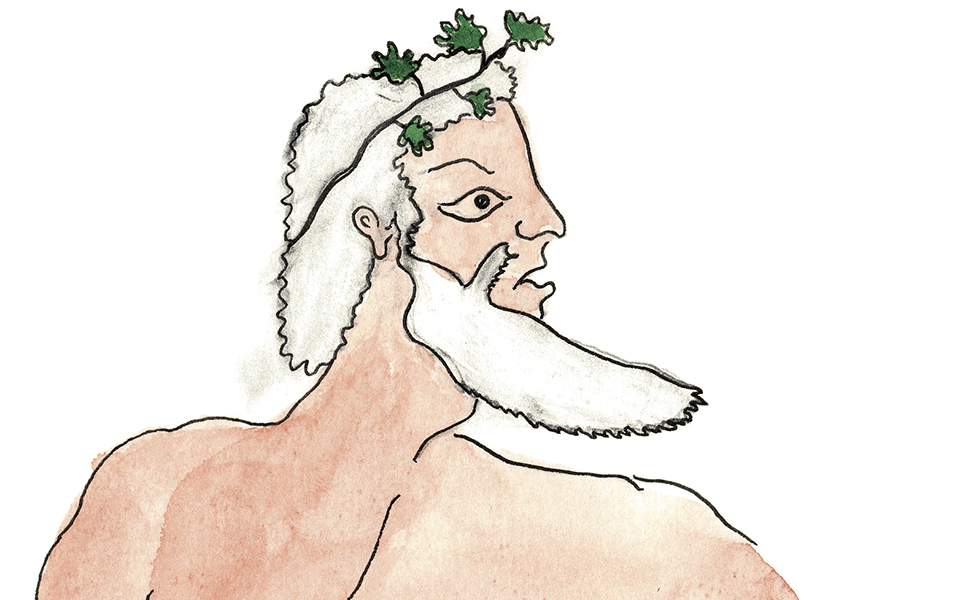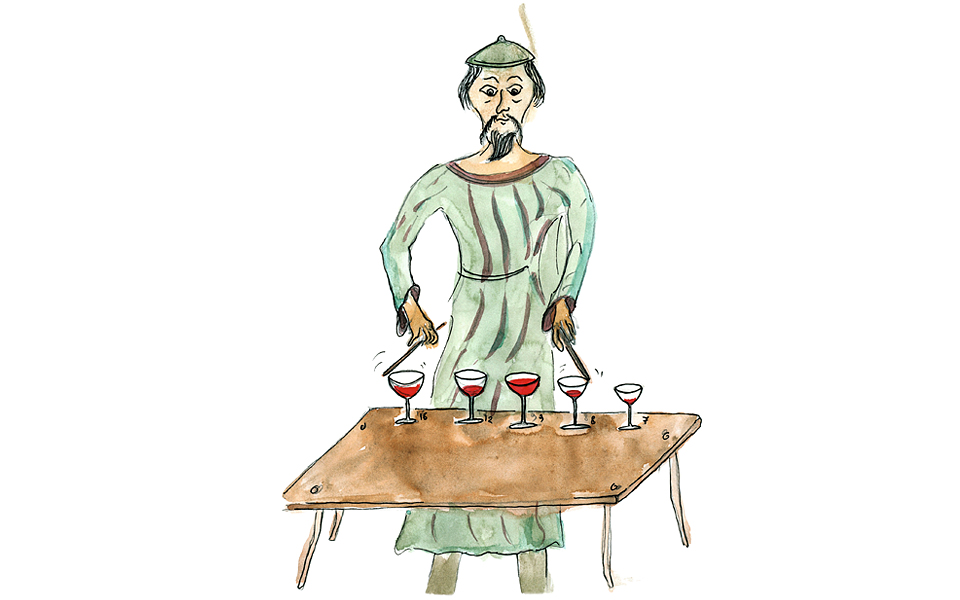Let’s face it. For many wine lovers around the world, “Top Quality Greek Wine” may appear as an oxymoron. Back in the 1970s, this could have been true. The vast majority of wine produced in Greece was sold in bulk, often disguised as a poor quality, oxidized retsina. The situation created a bad image for Greek wine that continues to haunt it – even seasoned wine writers around the world would think that little has changed. However, Greek wine production has undergone a sea change since the 1980s and its people are constantly improving it, vintage upon vintage.
The story of wine has always been linked to history. Someone could argue that, in order to create fine wine you must have two kinds of aristocracy – one able to afford to produce it and another with the means and desire to buy it. France is a prime example, with affluent landlords and monasteries producing wine to be consumed at court. California is another, more modern illustration of this dynamic, with Napa Valley developing hand in hand with Silicon Valley.
Greece has a long and turbulent history, during centuries, if not millennia, of which most people lived in poverty. Wine was always an integral part of everyday life – after all, Greeks were the first to create an enveloping culture for this product. The first wine writers, the first sommeliers and even the first laws regarding wine were Greek. Nevertheless, wine was a staple of nutrition, but not an aspiring product able to command high prices and satisfy eclectic tastes. For most of the 20th century, wine was mainly produced in bulk, sold down to a price rather than up to a quality. The established commercial wineries focused on the production of high volume, cheap wine since this is what they could sell.
But wine was becoming more and more important as a product. People were moving out of their villages and into the booming cities, so they could not keep on producing their own homemade wine. Sales in urban areas increased. As a direct consequence, wineries became more structured and the need for qualified professionals grew.
As oenology degrees were not available from Greek universities at that time, interested students had to study abroad, in France, Germany, Italy or even the US and Australia. Upon their return, graduates had no option but to start working for the big wineries, such as Boutari, Achaia Clauss, Tsantali, Kourtakis and many others. The die was cast, though. Soon, these young winemakers wanted to do their own thing and make a statement about high quality and low volume. Since bottled wine was becoming more of a luxury product, a number of wealthy businesspeople, initially not involved in the industry, made substantial investments in vineyards and wineries, as a lifestyle decision more than anything else. This become known as the 1980s revolution of small wine producers and it set Greek wine on a blazing trail.
The resulting chain reactions would resemble the chemical reactions in winemaking. The first small wineries were located in many scattered locations, not always in the traditional wine areas around Greece. These ventures were very successful and they increased in size and capacity, to become medium-sized in time. The gap created was swiftly filled by new entries, essentially the next wave of ambitious oenologists or eager investors. The big players had to get their act together in order to make better quality wines at really sharp prices.
“This become known as the 1980s revolution of small wine producers and it set Greek wine on a blazing trail.”

This explosion on the production end was conveniently coupled with equivalent changes on the consumer end. The restaurant scene in most Greek cities, as well as in a vast number of holiday resorts, became more ambitious and quality-oriented in order to satisfy the tastes of an increasingly discerning clientele. Sommeliers, wine writers, retailers and traders were flourishing. From 1985 to 2008, the sector was more or less in a constant state of euphoria.
There was a downside, however. Wine producers, being related to an exciting, thirsty national market, could meet the expense of neglecting exports. Selling to Greeks in Greece was cheaper, faster and easier. Even the labels were, usually, loaded with text in Greek, thus shutting the millions of tourists who flocked to the country out of the quality wine market. Evidence of this was the infatuation of many producers with international varieties like Chardonnay and Merlot. While wines made from these grapes might have had an appeal for Greeks, this was less so for international palates that had been exposed to Chardonnays made all over the world.
Then, in 2009, the financial crisis hit. All of a sudden, the matter was not what people would like to buy, but what they had enough money for. The bottled wine market was set to collapse, with people asking for the cheapest wine available, which reignited the demand for wine in bulk. Nevertheless, Greek wine showed an amazing resilience. Producers swiftly developed export strategies, trying to gain the lost share in the local market, using the truly world-class wines in their portfolio.
The implementation of these strategies needed top-quality executives and, in line with market demands, wine education prospered. Even within Greece, wine bars became the next trend, offering high quality wines by the glass, making them more accessible to younger consumers. That resilience demonstrates the amazing, world-class quality of people behind Greek wine production. It also explains the fantastic quality of 21st-century Greek wines.
There is also the future for Greek wine and this always comes down to young people. Wine production is an extremely long-term business – when winemakers talk in “quarter terms,” they mean a quarter of a century rather than a quarter of a year. It takes generations to fully understand a vineyard. So, one of the most crucial factors in achieving success in the wine business is passing the torch on to the next generation. And it seems that Greeks know how to do that. The winery owners are attentively preparing their daughters and sons, to make them ready to produce the vinous masterpieces of tomorrow. At the same, more and more young people are falling in love with wine, seeking top-end education, spending money and time on comprehending wine while maintaining a global perspective. The future seems assured.
Winemaking is, in many ways, a conversation between a person and a place – but it is the person that dictates most of that conversation. A charismatic, knowledgeable, determined personality will always be able to find a suitable place. A gifted place, silent, immobilized, might seek an appropriate mind for an eternity. The climate, soils and rare grape varieties are pieces of the puzzle that add excitement and complexity. Greece, in more sectors than just wine, has no shortage of either charismatic personalities or gifted places. These elements have finally come into place to produce great Greek wine. The result, I assure you, is nothing short of breathtaking.
ABOUT THE AUTHOR
Konstantinos Lazarakis, a Master of Wine since 2002, is a wine consultant, journalist and author of The Wines of Greece (Mitchell Beazley Publishers).
More and more young people are falling in love with wine, spending money and time on comprehending it while maintaining a global perspective.










